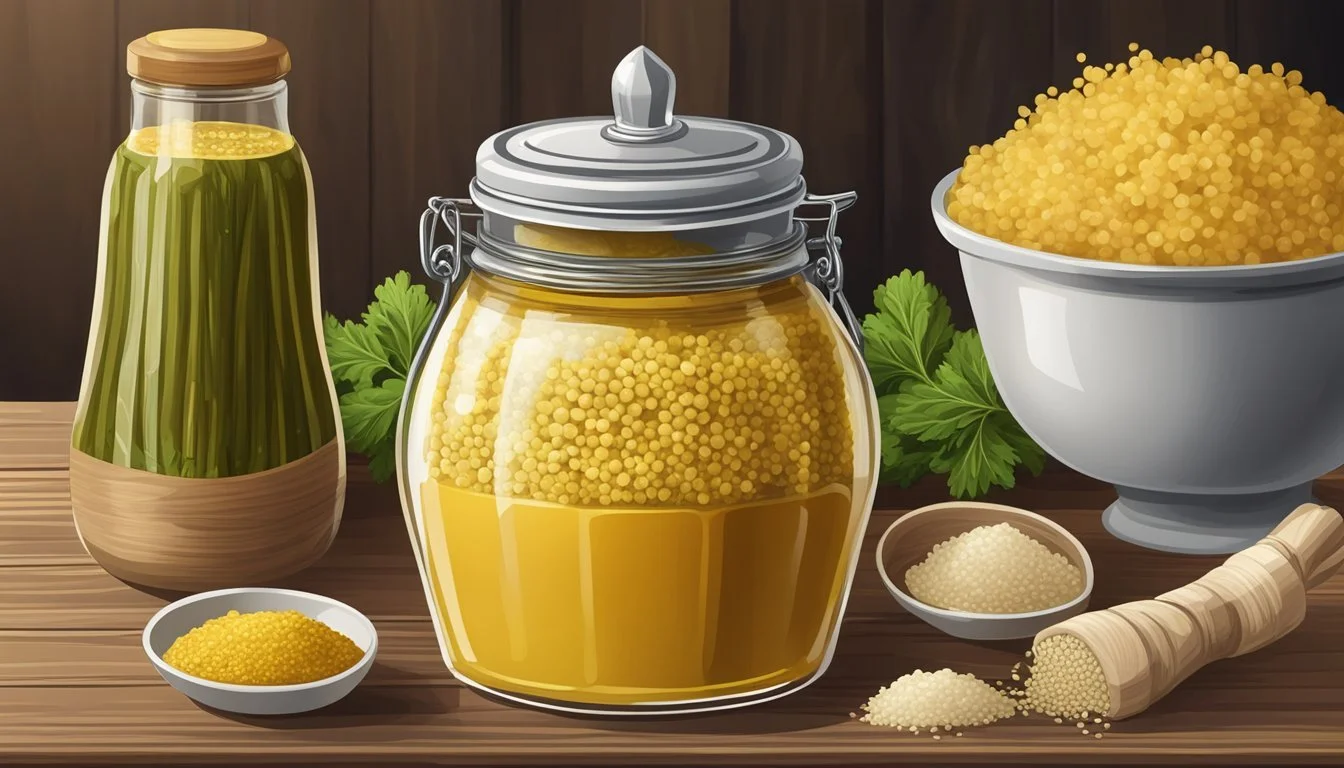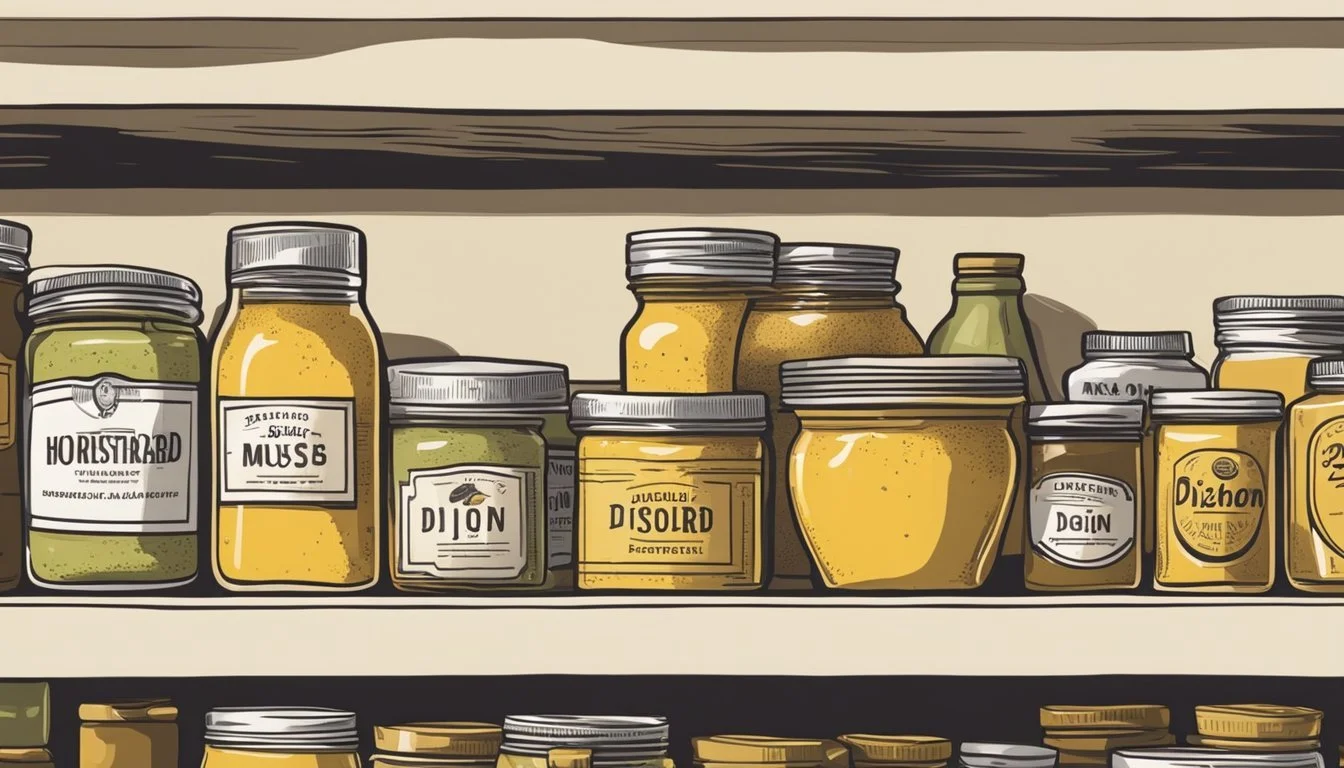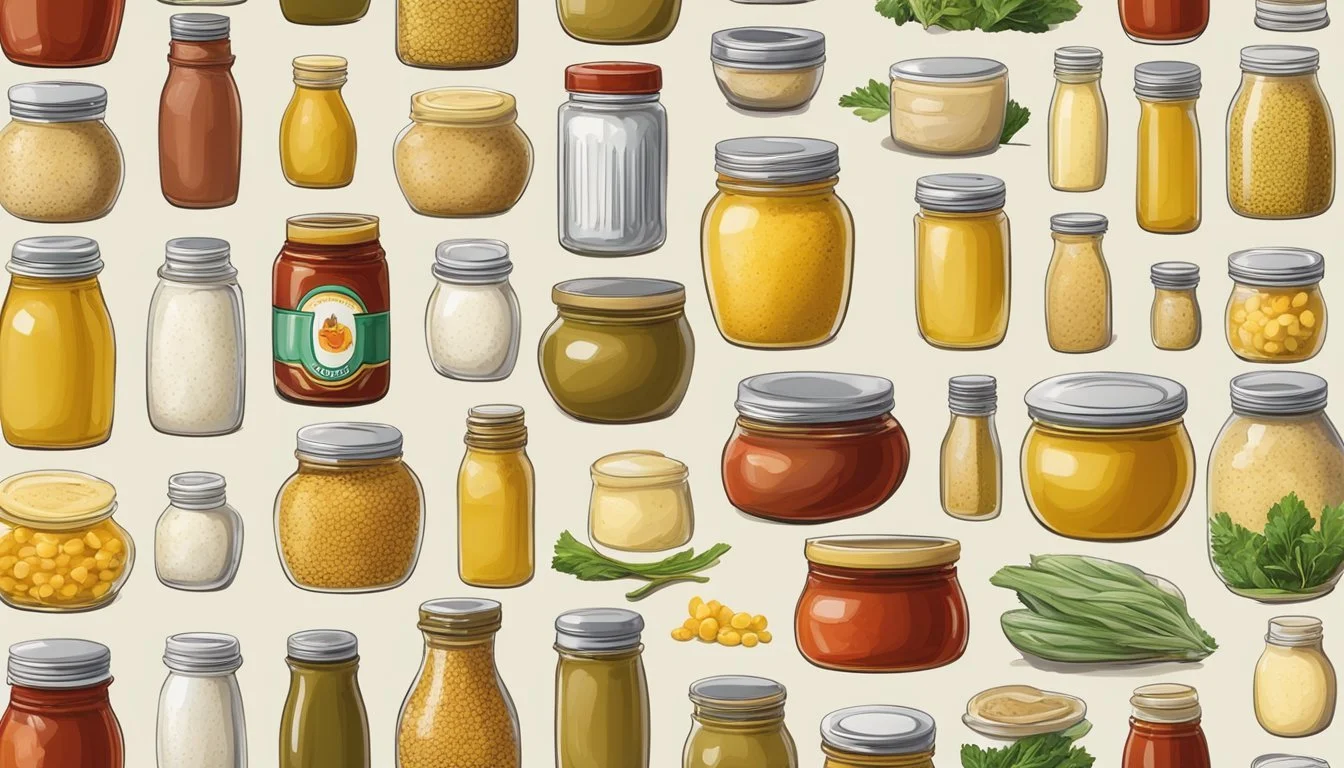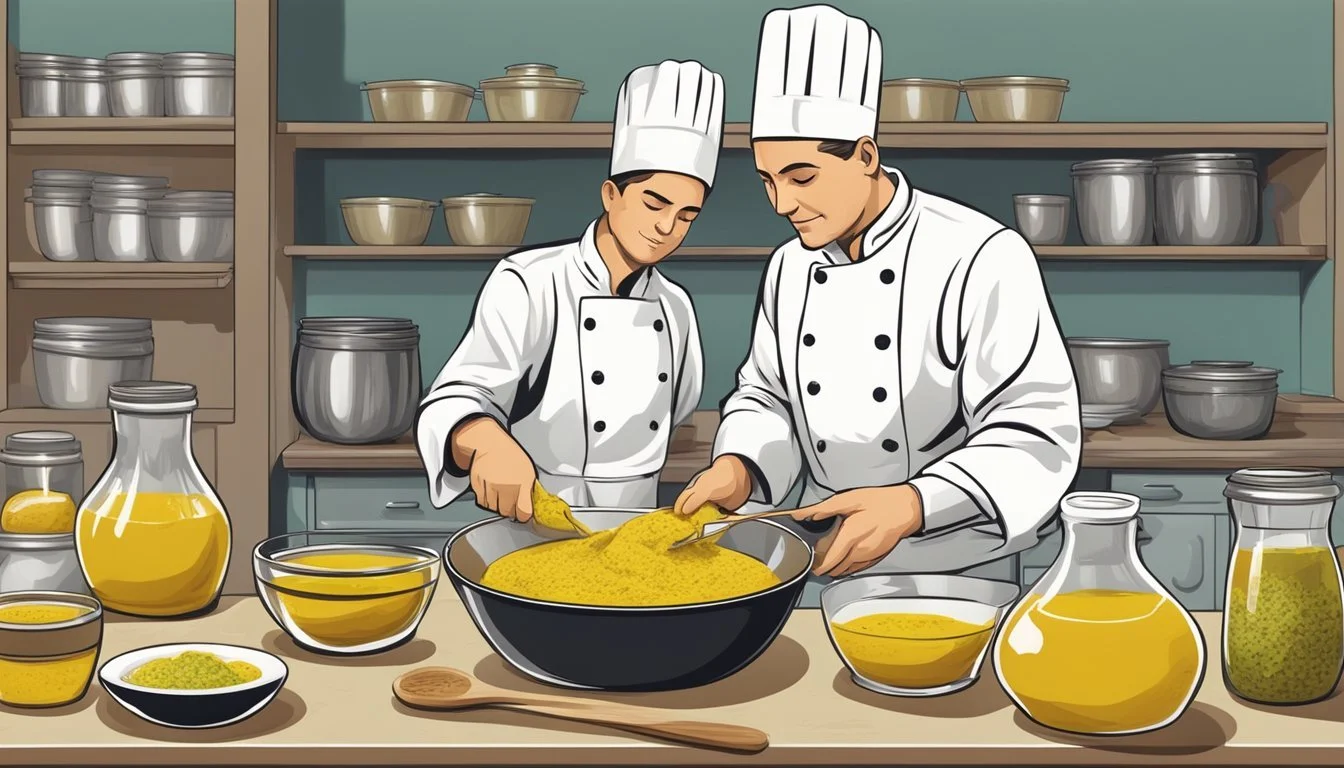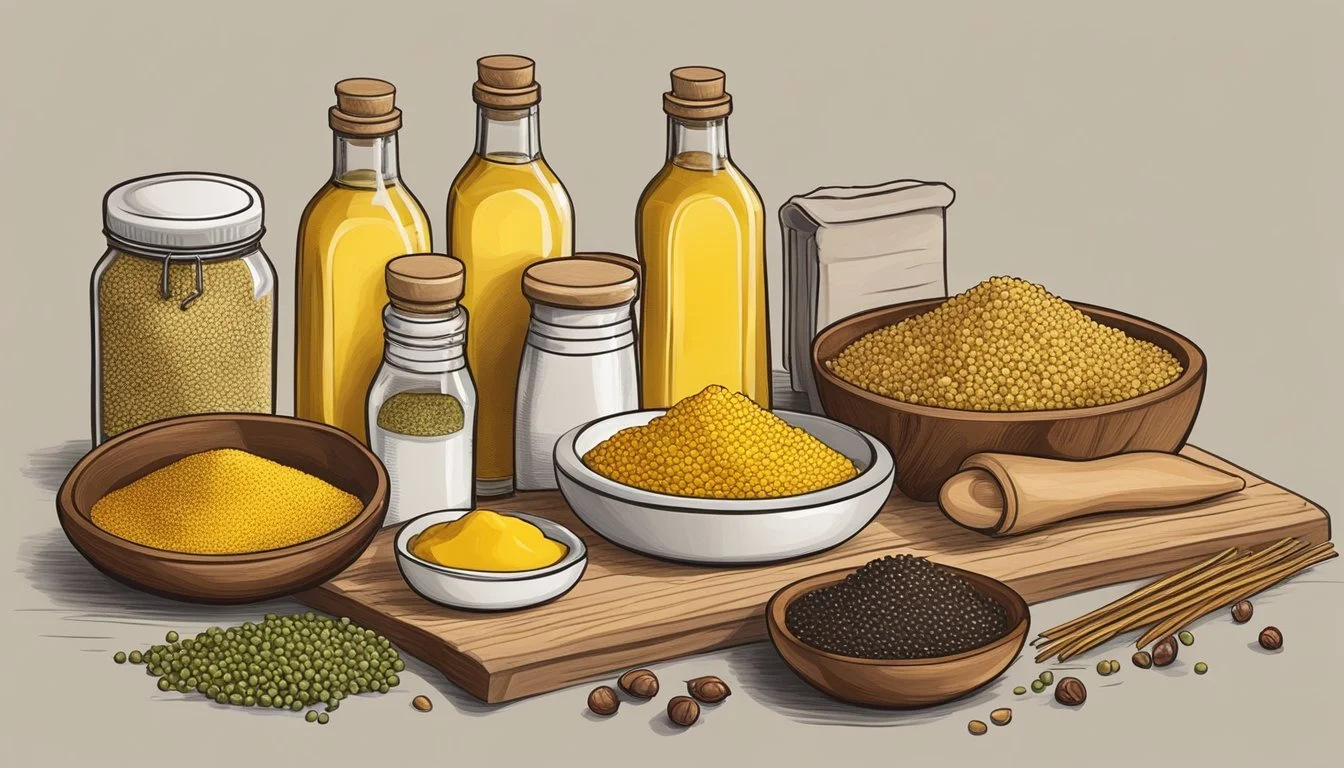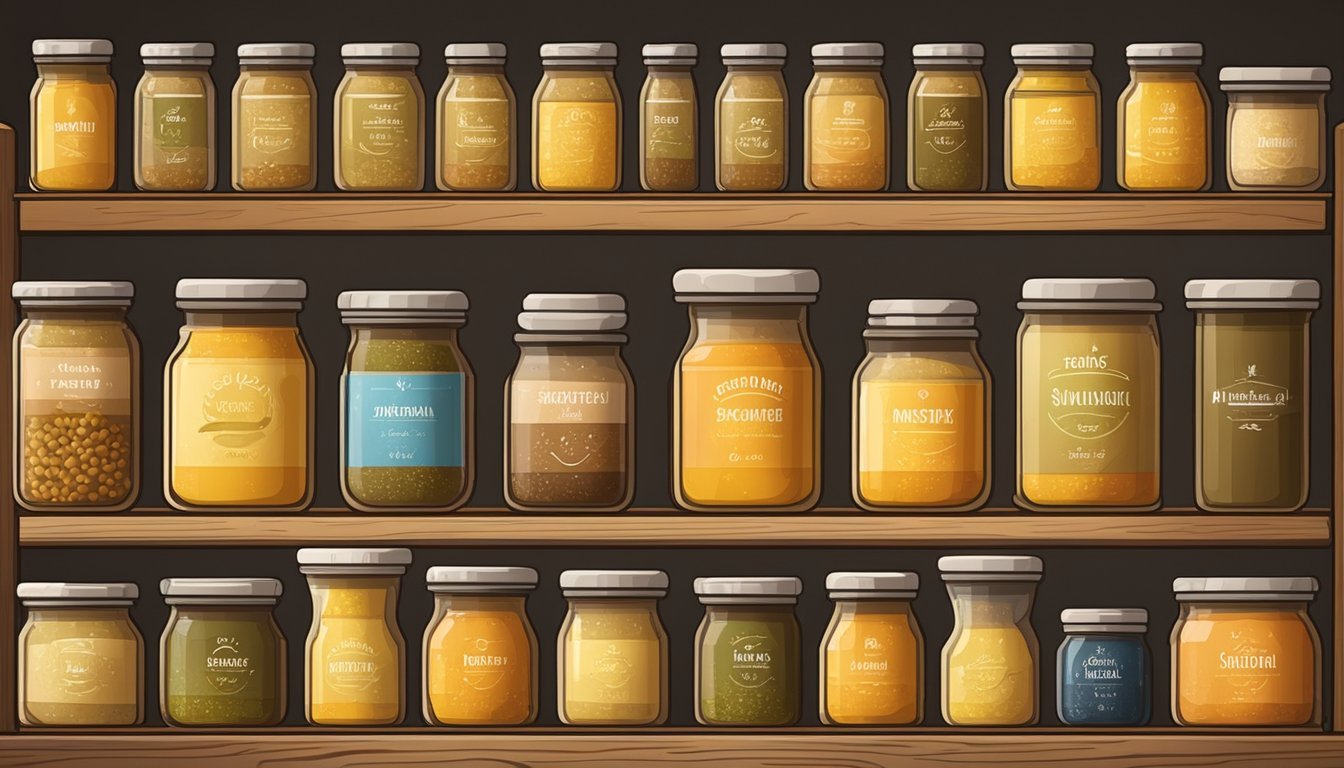Russian Mustard Substitutes
Top Alternatives for Your Recipes
Finding a substitute for Russian mustard can be quite the culinary conundrum for chefs and food enthusiasts alike. Russian mustard, known for its sharp and robust flavor, is a staple in many dishes and adds a distinct zest that can elevate the taste of meats, dressings, and sandwiches. However, when Russian mustard is not readily available, or one is looking for an alternative with a similar flavor profile, several options can be considered to achieve a comparable piquancy in recipes.
Substitutes range from the closely related mustards, like Dijon or spicy brown mustard, to more creative alternatives such as horseradish or wasabi, which offer a similar heat and intensity. When opting for a substitute, it’s important to consider the intensity and flavor notes of the alternative in relation to the original ingredient to maintain the desired outcome in the dish. Some substitutes may impart a milder flavor, while others bring additional tang or sweetness to a recipe.
Understanding Russian Mustard
Russian Mustard stands as a distinct condiment in the culinary world, known for its sharp taste and versatile use in a variety of dishes.
Main Components of Russian Mustard
The foundation of Russian Mustard lies in its mustard seeds, typically a blend that includes both black and brown seeds for robust flavor. It may also contain:
Vinegar or acidic components to balance the flavor,
Salt for seasoning,
Spices such as sugar, cloves, and cinnamon for additional complexity.
Taste Profile of Russian Mustard
Russian Mustard is characterized by a notably pungent and intense flavor profile, with a powerful heat and spiciness that can be attributed to the mustard seeds used in its preparation. The flavor can be described as:
Spicy: due to the use of black mustard seeds,
Sharp: as a result of careful fermentation or acidification,
Complex: with a hint of bitterness rounding out the taste.
Culinary Uses of Russian Mustard
In the kitchen, Russian Mustard is employed as a condiment and flavor enhancer across a multitude of culinary applications, such as:
Beef dishes: where it complements the rich flavors,
Sandwich spreads: to add a spicy kick,
Marinades: infusing meats with its potent taste,
Dressings: where it can be mixed with other ingredients for a balanced flavor.
It is used sparingly due to its intense flavor, ensuring that a dish's taste profile is enriched without being overwhelmed.
Finding the Right Substitute
When seeking Russian mustard substitutes, one should focus on matching the flavor profile and consistency while considering any dietary restrictions or allergies.
Criteria for Choosing a Substitute
In selecting a suitable substitute for Russian mustard, one should consider the following criteria:
Flavor Matching: It must possess a compatible flavor, ensuring it complements the other ingredients in the dish.
Texture: The alternative should have a similar consistency, which could impact the dish's final presentation.
Acidity: A good substitute will balance the tanginess that Russian mustard typically provides.
Availability: Choose an option that is easily obtainable from local grocery stores or from items already in your pantry.
Here are a few specific substitutes for Russian mustard:
Horseradish: It gives a pungent, spicy kick, much like mustard. Use sparingly due to its intense flavor.
Wasabi: Another potent substitute with a sharp, hot taste, available in powder or paste form.
Common Allergies and Dietary Restrictions
Mustard allergies are relatively rare, but they can be serious. Those with a mustard allergy must avoid all types of mustard and its derivatives. When recommending substitutes, one must bear in mind common allergens like gluten, nuts, and dairy which could be present in substitute products. Here's how to navigate substitutes with these considerations:
Gluten-Free Options: Opt for gluten-free labeled condiments, like certain mayonnaise brands, as a mustard alternative if gluten is a concern.
Nut and Dairy Allergies: Non-dairy spreads can replace mustards in sandwiches and dressings, ensuring there are no nuts or dairy in the ingredient list.
By adhering to these criteria, one can find Russian mustard substitutes that closely align with the original ingredient's role in culinary applications while respecting dietary needs.
Mustard-Based Substitutes
In selecting a substitute for Russian mustard, one should consider the flavor profile and potency. The following mustard-based alternatives offer a variety of options to match the desired taste and intensity in recipes.
Dijon Mustard
Dijon mustard is a tangy, sharp alternative that serves well as a condiment and in sauces. When substituting in recipes, it can replace Russian mustard in equal proportions.
Yellow Mustard
For a milder taste, yellow mustard, commonly found in squeeze bottles, is a suitable substitute. It is less spicy and provides a somewhat vinegary flavor. One may use it as a one-for-one substitute in wet recipes.
Honey Mustard
Honey mustard brings a sweet and mildly tangy flavor. Its sweetness makes it less intense, and it can serve as the flavored mustard of choice, particularly in dressings and dips.
Spicy Brown Mustard
Spicy brown mustard offers a robust, pungent taste and can effectively replace flavored mustard like Russian mustard. Use in moderation, due to its stronger notes, especially as a substitute for dry mustard.
Whole Grain Mustard
Whole grain mustard, characterized by partially ground mustard seeds, provides texture and a moderately spicy kick. It pairs well in recipes requiring the complexity of Russian mustard.
Homemade Mustard Variations
Homemade mustard allows for customization. One can grind yellow, brown, or black mustard seeds and adjust spices to personal preference. This option is particularly fitting when a ground mustard substitute is needed.
Non-Mustard Alternatives
When Russian mustard is not available, there are several non-mustard alternatives that can offer a similar kick or enhance the flavor of a dish. These alternatives range from root-based pastes to dynamic spices, vinegars, and diverse condiments.
Horseradish and Wasabi
Horseradish and Wasabi are root vegetables that provide a sharp, peppery flavor similar to the heat of Russian mustard. Prepared horseradish can be used sparingly in marinades and stews. Wasabi, often found in a paste or powder form, is potent and should also be added in small amounts to avoid overwhelming the dish.
Turmeric and Other Spices
Turmeric offers a yellow color that mimics some mustards and imparts a warm, earthy flavor. It's a major component in curries and works well in dry rubs. Other spices such as ginger, garlic, caraway seeds, and chili pepper can be blended to enhance flavors in absence of mustard and suit a variety of recipes from dressings to meats.
Vinegar-Based Substitutes
Various types of vinegar provide the tanginess that one might miss from mustard. White vinegar is a staple that can be used with additional seasonings. Alternatives like apple cider vinegar and rice wine vinegar offer subtle sweetness and complexity. They work particularly well in dressings and marinades when Russian mustard is not on hand.
Sauces and Condiments
Condiments such as ketchup, barbecue sauce, and sriracha bring both sweetness and a tangy profile to dishes. For depth, Worcestershire sauce can add a savory, umami flavor. When substituting, these should be used cautiously to balance the taste with the dish they accompany. Hot sauce can also provide a piquant flavor for those seeking heat.
Culinary Applications for Substitutes
When cooking with substitutes for Russian mustard, it is crucial to preserve the integrity of the dish by understanding how to adjust recipes measure for measure and ensuring flavor harmony.
Adjusting Recipes Measure for Measure
In recipes that call for Russian mustard, one can typically swap it out using prepared mustard or homemade alternatives. Measure for measure, a teaspoon of dry mustard equates to one tablespoon of wet mustard. Home cooks should be wary of the potency of the substitute, as the spice level can vary:
Yellow mustard seeds (milder)
Brown mustard seeds (medium heat)
Black mustard seeds (hottest)
For those looking to make their own mustard, ground mustard seeds blended with vinegar and spices can emulate Russian mustard's sharpness.
For wet recipes like marinades or sauces, one should follow the label instructions of the mustard substitute used to achieve similar piquancy and texture.
Ensuring Flavor Harmony in Dishes
Substitutes should maintain the desired flavor notes and not overpower the dish. The following recommendations adhere to the flavor balance:
Prepared horseradish or wasabi: A small amount can replace Russian mustard, bringing a heat that's similar in intensity.
Mayonnaise: This alternative won't mimic the flavor exactly but will contribute to the desired thickness in a dish.
Vinegar: This adds necessary acidity but should be used sparingly to not overwhelm other flavors.
To ensure culinary success, chefs and home cooks alike should taste their cooking progress and adjust seasoning with precision. This helps maintain the original character of the recipe while utilizing an effective mustard substitute.
Health and Nutrition Considerations
When considering substitutions for Russian mustard, it's important to weigh both the health benefits of mustard seeds and how substitutes might align with dietary health needs.
Benefits of Mustard Seeds
Mustard seeds offer a variety of health benefits. They contain antioxidants that support anti-inflammatory properties and may provide relief for respiratory disorders. They are also a source of glucosinolates, compounds known for their potential in cancer prevention. The seeds are low in calories yet high in flavor, making them an ideal component in a diet conscious of calorie intake.
Nutritional Profile of Mustard Seeds (per 1 tablespoon, ground):
Calories: 32
Protein: 1.8 g
Fiber: 1.6 g
Selenium: 21% of the RDI
Manganese: 12% of the RDI
Calcium: 2% of the RDI
Substitutes and Dietary Health
When considering substitutes for mustard in recipes, one must take into account how the alternative might affect the nutritional balance of the dish. Substitutes may not always align with the dietary and health benefits provided by mustard seeds.
Notable Substitutes and Their Comparisons:
Horseradish: A close relative of mustard, it is low in calories and offers a similar spicy profile. However, its intense flavor requires careful consideration to avoid overpowering a dish.
Wasabi: Also in the same family as mustard, wasabi offers similar health benefits. It tends to be used sparingly due to its strong flavor.
Vinegars (e.g. white vinegar): These can provide the tanginess you might miss from mustard but come with varying acidity levels. Individuals must consider the potential impact on the digestive system.
One should always consider the need for additional seasoning when using substitutes to mimic the complex flavor profile of mustard seeds without compromising the intended health benefits of using mustard in the first place.
Preservation and Storage
Preserving the quality of Russian mustard and its substitutes ensures lasting flavor and potency. Proper storage methods are key to maintaining freshness.
Shelf Life of Mustard and Substitutes
Russian Mustard: Shelf life can vary depending on the ingredients and the packaging. An unopened jar of Russian mustard typically lasts up to 2 years when kept in a pantry at a stable temperature range of 50°F to 70°F, away from direct light. Once opened, the shelf life can be up to 1 year if refrigerated.
Substitutes:
Vinegar-Based Substitutes: These possess a longer shelf life due to the preserving nature of vinegar. Keep vinegar-based alternatives in a cool and dark pantry to maximize their longevity.
Horseradish and Wasabi: Both substitutes should be stored sealed and refrigerated. They can last for several months but will lose potency over time.
Storing Homemade Substitutes
For homemade mustard:
Refrigeration is essential, as homemade mustard lacks preservatives. Store in an airtight container.
It's typically fresh up to 1 month, with optimal flavor present in the first couple of weeks.
Homemade Vinegar Mixes:
Even without preservatives, vinegar's acidity offers preservation.
Store in the refrigerator in a sealed container for up to 4-6 months, checking periodically for flavor quality.
Innovative Cooking Tips
When delving into the world of mustard substitutes, a cook's creativity and palate play pivotal roles. The following subsections provide practical advice for incorporating alternative ingredients that maintain the essence of the original condiment.
Creative Uses of Mustard Substitutes
In recipes where mustard's tangy zest is essential, mayonnaise can be a savior in the kitchen. For instance, when making a potato salad or a dressing, a cook might replace mustard with equal parts mayonnaise for a creamy and thick consistency. However, for those dishes where a sharper bite is preferable, sour cream or plain yogurt can inject a similar level of acidity.
Sandwich spreads: Mix mayonnaise with a pinch of turmeric for color and a dash of garlic powder for added complexity.
Dressings: Blend sour cream or plain yogurt with a bit of honey and lemon juice to mimic mustard's characteristic zing.
Experimenting with Different Flavors
To replicate the depth found in Russian dressing, one could combine mayonnaise with a touch of ketchup, adding paprika and horseradish for heat and smoked flavor. For a variation mimicking French dressing, a sweeter profile can be achieved by whisking together mayonnaise, tomato paste, and a splash of vinegar.
Table 1: Flavor Experimentation for Mustard Substitutes
Original Mustard Substitute Base Additions for Flavor Russian Dressing Mayonnaise Ketchup + Paprika + Horseradish French Dressing Mayonnaise Tomato Paste + Vinegar + Sugar
These suggestions are not only meant to serve as direct substitutes but also as a springboard for further culinary exploration. A chef's intuition and knowledge of their diners’ preferences are pivotal in adjusting the ingredients to suit the intended recipe's flavor profile.
Conclusion
In the quest to find suitable substitutes for Russian mustard, one has several options to consider. These alternatives vary in taste, texture, and heat level, providing ample flexibility for culinary experimentation.
Vinegar stands out as a practical replacement, particularly white vinegar, for its acidity and as a base for additional seasonings. A cautious approach is advised when using it due to its potency.
For those seeking a spicy kick akin to Russian mustard's heat, wasabi and horseradish present themselves as robust choices. They deliver a comparable pungency and should be used sparingly to avoid overwhelming the palate.
Mayonnaise can mimic the creamy consistency in recipes that do not rely heavily on mustard's tanginess.
Mustard seeds, when ground, are the closest one can get to the original mustard flavor, allowing for customization in coarseness and intensity.
It is crucial to taste the dish when using any of these alternatives, adjusting the amount to achieve the desired flavor profile. Each substitute offers its own unique contribution to a dish, and careful selection can bring one quite close to replicating the distinct taste and qualities of Russian mustard.


